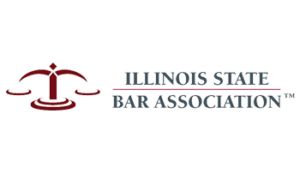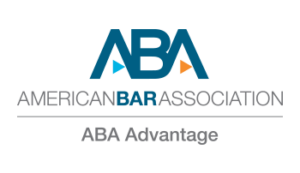Why Choose Us?

Walner Law has proudly served the people and families of Chicago since 1961, handling personal injury cases throughout Illinois. Over the years, our legal team has helped individuals injured in car collisions, pedestrian accidents, and mass transit incidents recover damages for medical bills, lost wages, and pain and suffering due to another’s negligence.
If you or someone close to you has been hurt in a bus accident, we invite you to speak with our team and learn more about your options. Call us at 312-410-8496 to get started.
Bus Accidents in Chicago
With hundreds of buses running through Chicago daily, the potential for collisions is higher than many people realize. These large vehicles carry many passengers, operate on tight schedules, and navigate busy roads. Many other factors can contribute to a bus accident: dangerous road conditions, driver inattention, poor maintenance, and more.
Here are just a few examples of the ways bus accidents can happen in Chicago:
- Rear-End Crashes: A bus may need extra distance to come to a full stop. If a bus driver misjudges the distance or if the bus’s brakes aren’t well-maintained, the bus might crash into the back of a car or vice versa.
- Intersection Collisions: Buses frequently navigate busy intersections. If the bus driver or another driver runs a red light or fails to yield, a T-bone or side-impact collision may occur.
- Pedestrian and Cyclist Injuries: Chicago’s streets have heavy foot and bicycle traffic. If a bus operator does not see a crossing pedestrian or cyclist, devastating injuries can result.
- Single-Vehicle Incidents: Sometimes, a crash does not involve another car but rather a bus hitting a guardrail, a building, or a barrier. Passengers on the bus can be thrown from their seats and sustain injuries, especially if the bus lacks seatbelts.
When a bus collides with another vehicle, its size and weight often cause major damage. The force of impact can throw passengers around, and people in smaller cars can be hurt. Figuring out who is responsible can become complicated because there may be more than one party at fault.
A bus driver could have contributed to the crash by speeding or driving recklessly, but the bus company or even a maintenance crew may also share responsibility if the bus had a mechanical failure. Special rules apply to a publicly owned bus system, such as the CTA, and different considerations apply to private or charter buses.
Having a dedicated legal team to help sort through these issues can make a meaningful difference in your recovery.
Passengers on Buses: Injuries and Legal Considerations
For passengers on buses, injuries can be severe. Many buses do not have seatbelts, which means that riders may be tossed around inside the vehicle at the moment of impact or when a bus driver makes a sudden maneuver. Common injuries from these scenarios include:

- Head and Traumatic Brain Injuries: Hitting your head on a window, seat, or metal bar in a bus can result in concussions or other brain trauma.
- Spinal Cord Injuries: The force of being thrown can injure the spinal cord or damage vertebrae, leading to serious conditions like paralysis or chronic back pain.
- Broken Bones and Fractures: The sudden impact can cause broken arms, legs, ribs, or collarbones.
- Soft Tissue Injuries: Whiplash, sprains, and bruises often result from abrupt jolts.
- Internal Bleeding and Organ Damage: A bus crash can exert a strong force on the body, sometimes causing injuries that are not immediately obvious but require urgent medical attention.
Passengers often face unique hurdles after the crash. In a typical two-car collision, you may only deal with one other driver’s insurance. But as a bus passenger, you may be dealing with a transit authority, private bus carrier, or municipal entity.
Sorting out who is at fault can feel overwhelming at a time when you would rather focus on healing. Walner Law takes steps to investigate the accident, clarify who should be held accountable, and guide you on the path toward compensation.
Claiming Compensation as a Passenger
When you are hurt on a bus, you have the right to seek compensation for medical bills, lost wages, physical pain, emotional struggles, and other losses tied to the accident.
If the responsible party is a public agency, like the Chicago Transit Authority, the process can differ from a typical personal injury claim. There may be shorter deadlines to file a notice of claim, and special rules can apply to lawsuits against government entities in Illinois.
If you were riding on a bus operated by a private or charter company, the process may involve the bus company’s insurance providers. In either scenario, having an attorney on your side to communicate with insurance adjusters and local government offices can ease the burden for you. The goal is to ensure that your injuries and financial losses are properly addressed.
Collisions Between a Bus and Another Vehicle
When a bus collides with a smaller vehicle, it presents challenges for the occupants of cars, SUVs, or trucks. The people inside the smaller car usually suffer more serious harm due to the difference in size and weight. Buses can weigh tens of thousands of pounds, so a collision has the potential to crush or severely damage a car, leading to:
- Head and neck injuries
- Spinal injuries
- Broken bones
- Organ damage
- Lacerations from shattered glass
As in cases involving bus passengers, if you were driving or riding in a car that was hit by a bus, figuring out liability can be complex. In these cases, a thorough investigation is necessary, and a bus accident lawyer is an essential ally.
Distinct Chicago and Illinois Laws Affecting Bus-Vehicle Collisions
Commercial buses and public transit authorities in Illinois must abide by various federal and state regulations. In Chicago, additional local rules can apply, especially if the collision involves a CTA bus. Factors that might come into play include:
- Common Carrier Laws: In Illinois, buses that carry passengers for a fee may be treated as “common carriers.” This can affect how liability is determined because common carriers are held to a higher standard of safety and care.
- Government Tort Immunity: Public entities such as the CTA can invoke specific defenses in personal injury cases. There may also be strict time limits for filing a claim, making it valuable to act quickly.
- Comparative Negligence: Illinois follows a comparative negligence system, which means if you share some degree of fault for the accident, your recovery may be reduced by your percentage of fault.
Walner Law focuses on guiding clients through these complicated systems. If you are recovering from injuries suffered when riding on a bus or when your vehicle was struck by a bus, you deserve to have someone in your corner who can explain your options, protect your interests, and pursue fair compensation for you.
Common Causes of Bus Crashes
Knowing why a bus crash happened can help your attorney better understand who is responsible and build your personal injury claim. In many cases, a crash results from one or more contributing factors. Some frequent causes include:
Driver Negligence
Negligent driving can range from texting while behind the wheel to speeding, driving under the influence, or failing to observe traffic signals. If a driver is fatigued, distracted, or careless, tragedy can happen.
Defective Equipment
Poorly maintained brakes, malfunctioning signals, or tire issues can lead to a collision. Mechanical failures might be the fault of the bus company, a third-party maintenance provider, or the manufacturer of defective parts.
Dangerous Roadways
Chicago is known for heavy traffic, road construction, and, at times, challenging weather conditions. Potholes, insufficient signage, or poorly designed intersections might cause a bus accident.
Adverse Weather Conditions
Heavy snow, ice, or heavy rain can make roads hazardous. However, even in difficult weather, drivers are expected to adjust their speed and driving style to maintain safety.
Improper Bus Maintenance
Keeping a bus in good condition is a serious responsibility. If a bus is not inspected regularly or if known issues are not fixed, any resulting collision could have been prevented.
When investigating a bus accident, multiple sources of evidence may be reviewed, such as driver logs, maintenance records, camera footage (if available), and witness statements. Understanding the cause helps identify which individuals or entities are responsible for your injuries.
Physical, Emotional, and Financial Effects of a Bus Accident
Physical Injuries

After a serious crash, the aftermath can be lengthy and demanding. Physical injuries might require extended hospital stays, ongoing rehabilitation, or long-term care if injuries result in permanent disability. Even “minor” injuries like whiplash can interfere with your daily routine and prevent you from working.
Emotional and Psychological Harm
Survivors of bus accidents often deal with post-traumatic stress disorder (PTSD), anxiety, depression, or lingering fears of traveling by bus or car. These challenges may require therapy or other forms of mental health care. Emotional difficulties can affect your relationships, your ability to return to work, and your general quality of life.
Financial Burdens
Beyond medical costs, bus accidents can lead to lost wages, reduced earning capacity, and large bills for rehabilitative care. You may need to make modifications to your home if you have physical limitations. There can also be ongoing costs for mental health support, prescription medications, and doctor visits. By filing a personal injury claim, you can seek compensation that helps address the financial impact of a bus accident, letting you focus on your health.
Liability in Bus Accident Cases
Bus accidents often involve multiple parties who may share responsibility for the crash. Liability in these cases can become complex, but identifying everyone involved in causing the accident is a key step toward recovering compensation. Potentially responsible parties may include:
- Bus Driver: If the driver was speeding, distracted, or otherwise negligent, they can be held liable.
- Bus Company: The company that owns or operates the bus may be responsible for failing to train or supervise the driver or for not maintaining the bus properly.
- Government Entity: If the bus is publicly owned (for example, CTA), the entity may be responsible for failing to keep the buses in good condition, not addressing driver complaints or other oversights.
- Maintenance Contractors: If a third-party company was hired to maintain the bus, they could share fault if they neglected to fix known mechanical problems.
- Manufacturers: In some cases, a part installed in the bus may have been defective from the start. If that defect contributed to the crash, the manufacturer could be named in the claim.
Comparative Negligence in Illinois
Illinois uses a modified comparative negligence rule. This means you can still seek damages if you are partially at fault for the accident, as long as your share of fault is less than 51 percent. However, your potential recovery will be reduced by your percentage of fault.
Liability When Multiple Parties Are Injured
Bus accidents can involve numerous victims, especially if it is a bus carrying many riders. This can lead to multiple claims against the same bus driver, bus company, or third party. Each victim’s injuries must be considered separately, and insurance policies might be spread across multiple claims. Having an attorney who looks out for your individual case helps ensure your specific losses are properly addressed.
Statute of Limitations for Bus Accident Cases in Illinois
Bus accident claims in Illinois have time limits. Generally, for personal injury cases, you have two years from the date of the accident to file a lawsuit. However, if a government entity is involved, there may be more specific requirements and shorter notice periods.
When a bus is operated by a public entity, special legal rules can come into play. In Chicago, if you are hurt on a CTA bus, you may need to file a notice of claim with the agency in a relatively short timeframe. Missing the deadline can weaken your chances of recovering damages later on.
Government bodies sometimes have legal protections known as sovereign immunity, which can limit the amount you can recover or impose specific procedures that differ from claims against private companies. That does not mean you have no recourse.
Public transit providers have a responsibility to operate safely and maintain their vehicles. Seeking legal help early can allow you to comply with any strict deadlines and requirements for bringing a claim against a government entity in Illinois. Contact a lawyer as soon as you can so these filing requirements are met.
School Bus Accidents: Affecting Children and Families
School buses are seen daily on the roads, carrying children to and from classrooms, field trips, and extracurricular events. While many school bus trips end uneventfully, collisions still occur. Students can be hurt due to abrupt stops, rollovers, or collisions with other vehicles. In some cases, children boarding or exiting the bus are struck by negligent drivers. A collision involving a school bus can place multiple children at risk of serious harm.
Liability in a School Bus Accident
If your child is injured in a school bus accident, you might have claims against the school district, a private bus company contracted by the school, or another driver who caused the crash. School buses must meet various state and federal regulations, including proper signage, flashing lights, and crossing arms.
If any of these are missing or malfunctioning, the entity in charge of the bus may be responsible. You can also pursue damages for emotional distress and the cost of future medical treatment if your child’s injuries require ongoing care.
School bus accidents can be particularly traumatic for families. Having legal support during this time may help you find resources for your child’s recovery and hold any negligent parties accountable.
Insurance Issues in Bus Accident Claims
Bus companies, whether publicly or privately owned, typically carry insurance policies. Still, insurance adjusters do not always make the process easy. They may attempt to offer a quick settlement that is far lower than what you deserve, hoping you will accept without fully understanding your future medical needs and other potential costs.
- Multiple Claims: If a bus crash injures multiple passengers, the insurer might try to divide the coverage among all victims, leading to complex negotiations.
- Public vs. Private Policies: Government-operated buses may have self-insurance or coverage through a governmental insurance pool. Private operators typically have commercial insurance. Each has its own procedures and complexities.
- Uninsured/Underinsured Drivers: In some collisions, the at-fault driver is uninsured or underinsured. In these situations, you may be able to file a claim under your own insurance policy’s uninsured or underinsured coverage if that coverage was in place.
Walner Law can communicate with insurance representatives, review policy details, and work to secure a settlement or verdict that addresses your losses.
How Walner Law Approaches Bus Accident Cases
Walner Law is based in Chicago and has decades of experience advocating for personal injury victims across Illinois. Our team has handled a wide variety of motor vehicle accident claims, and we understand how complicated it can be to pursue justice after a bus crash. Our approach includes:
- Investigating the Scene: We work with investigators, gather police reports, and speak to witnesses.
- Analyzing Records: Maintenance logs, employment records, driver history, and more can shed light on what went wrong.
- Consulting with Professionals: We may bring in industry professionals to reconstruct the accident or evaluate mechanical failures.
- Negotiating with Insurance Companies: We handle all communications and settlement discussions so you can focus on your recovery.
- Litigation: If the insurance company refuses to offer a fair settlement, we prepare to file a lawsuit and present your case in court.
Recovering After a Bus Accident: Taking Back Control
A bus accident can leave anyone feeling anxious and uncertain. You may be coping with chronic pain, mental health challenges, and financial strain. In the midst of these difficulties, you do not have to navigate the legal and insurance landscape alone. By seeking support and asserting your rights, you can take the first steps toward healing and rebuilding your life.
Contact Walner Law for a Free Consultation

If you or someone in your family was injured in a bus accident in Chicago or anywhere in Illinois, Our Chicago personal injury lawyer is here to help. We offer free consultations so you can get answers to your questions and learn about possible options without any upfront cost. We also charge no fee unless we collect money for you, so there are no hidden expenses while your case is pending.
Call Walner Law at 312-410-8496 or use our online contact form to get started with a free consultation today. Let us evaluate your situation, explain the process, and assist you on your path to physical and financial recovery. We are committed to treating each client with compassion and working diligently to find a resolution that helps you move forward after a bus accident.


 Skip to content
Skip to content












